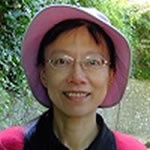Ecopedagogy Reconsidered in the Pandemic
Ruyu Hung, National Chiayi University
Ecopedagogy indicates a pedagogy grounded on the ecological worldview, which means the ecological approach to the understanding of the life and the world. (Hung, 2021, p.2). Ecopedagogy aims to bring education and life into the natural world of interdependence, interaction, and interrelations to embrace ecophilia, ecosophy, and ecojustice (Hung, 2017, 2021). I have suggested that place-and-nature-oriented teaching and learning is an appropriate approach to the respectful and caring attitude of nature (Hung, 2017). However, the coronavirus pandemic almost changes every aspect of education at once, including the way of conducting place-and-nature-oriented teaching and learning and the way of experiencing and observing nature. Without a doubt, ecopedagogy now is facing many challenges. For example. the pandemic unexpectedly gives wild animals more space in cities and more opportunities to enjoy life with rare humans around. It is crucial to reconsider the human-nature relationship and ecopedagogy in the pandemic right away. What has been changed in the way humans experience nature as nature-place? How is the nature-place reconceived because of the pandemic? What do we reconsider the human relationship with nature, non-human beings, and the Earth in a healthy, sound and sustainable way?
 |
Bio: Ruyu Hung is Distinguished Professor of Philosophy of Education at the National Chiayi University, Taiwan. Her academic interests are in the fields of philosophy of education, educational aesthetics and ethics with special approaches in deconstruction, phenomenology, ecological philosophy, and comparative studies. |
